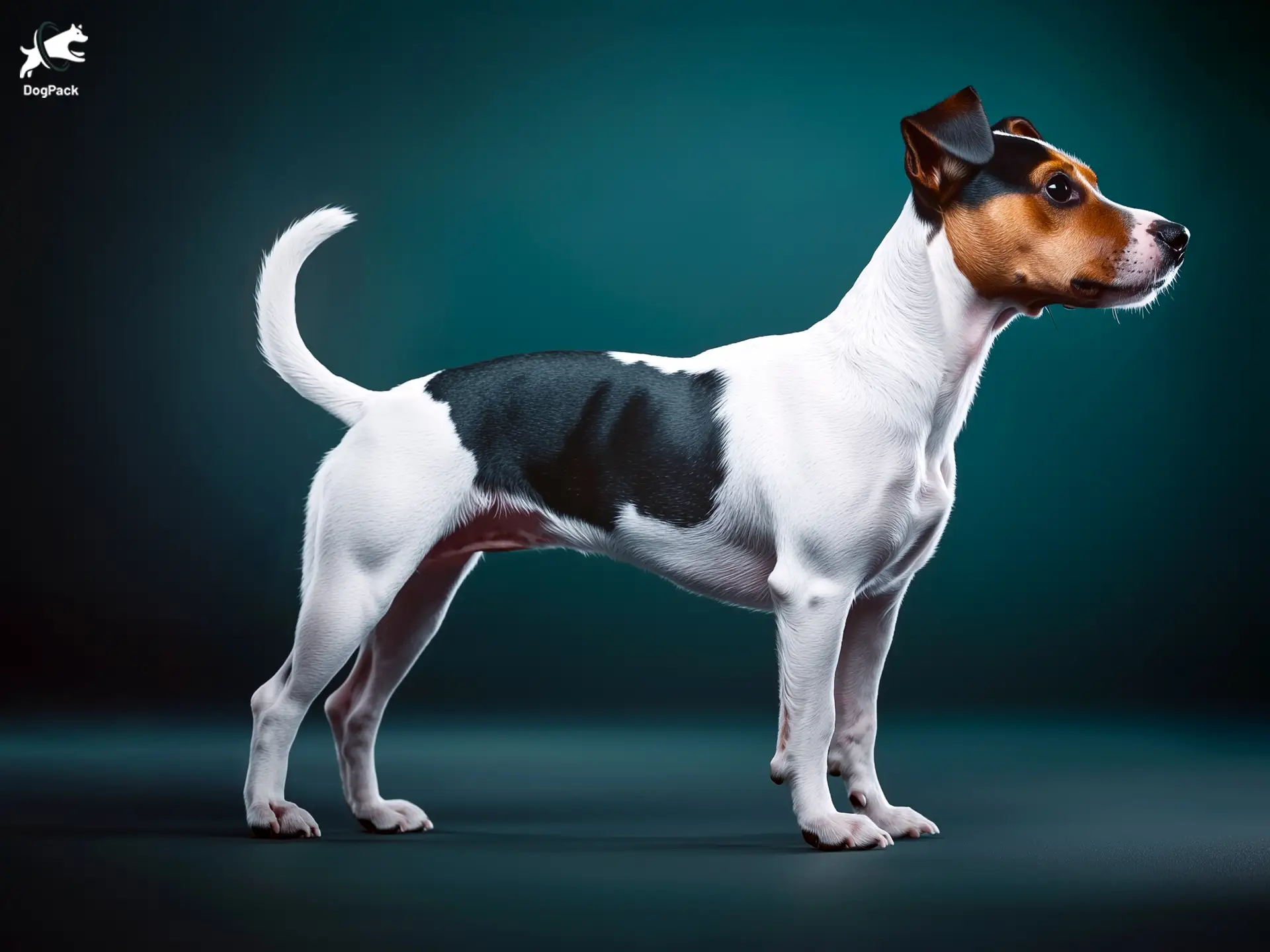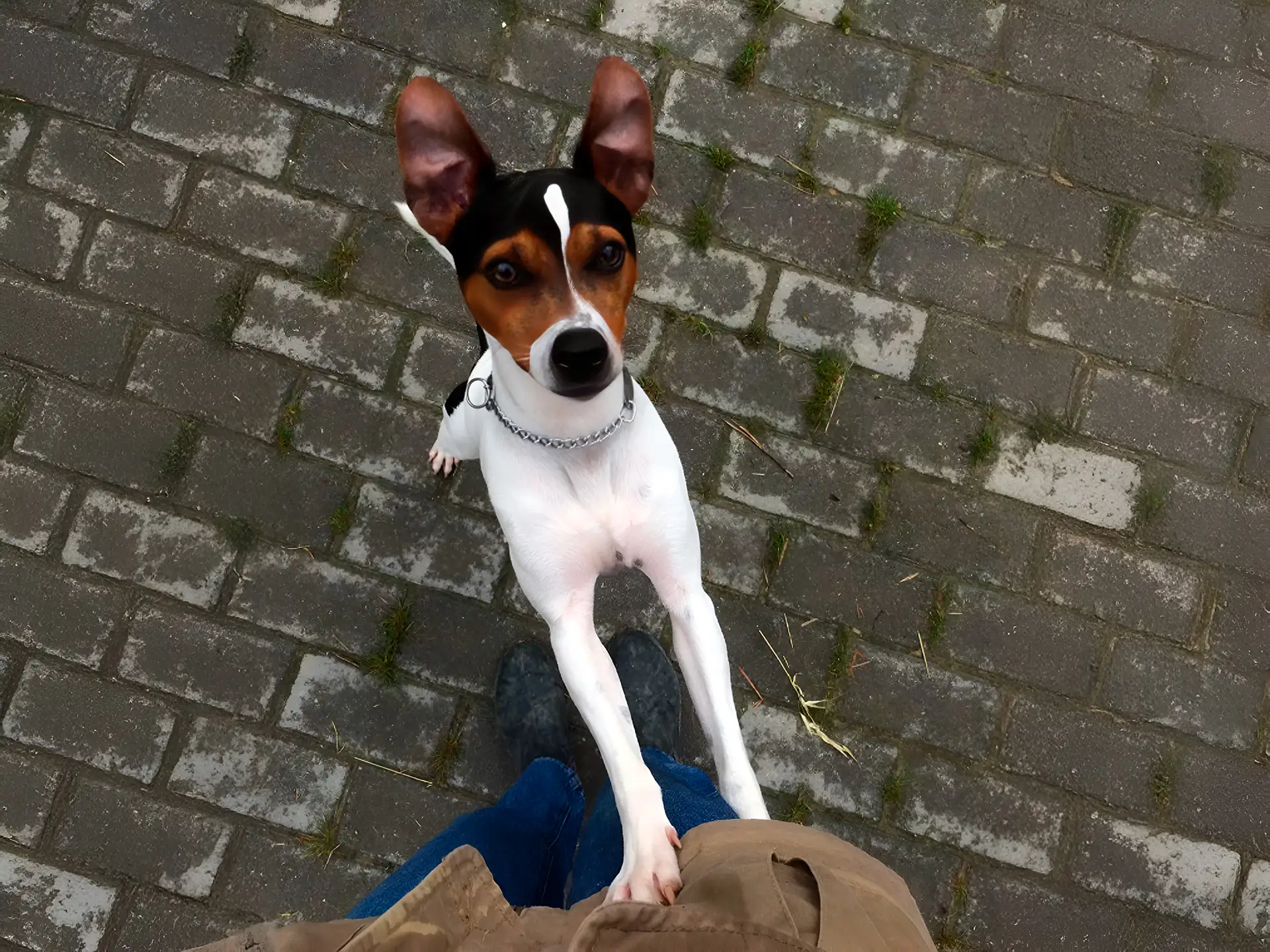Brazilian Terrier Dog Breed Info & Overview
The Brazilian Terrier is a lively, affectionate breed that combines boundless energy with a loyal heart. Always up for adventure, these spirited dogs are eager companions, bringing joy to every moment. Though rare outside their native Brazil, the Brazilian Terrier is a hidden gem, perfect for those seeking an energetic and devoted friend ready for fun and exploration.
Characteristics
Pictures
Breed History
Did you know the Brazilian Terrier is one of only a few breeds native to Brazil? Originating in the early 20th century, these dogs are descendants of Jack Russell Terriers and other small breeds brought over by European immigrants. Their mission? To create a versatile farm dog that could hunt vermin and guard the homestead.
The breed’s name, “Fox Paulistinha,” nods to their fox-like appearance and roots in São Paulo. While they’re popular in Brazil, they’re quite rare elsewhere—making them a unique addition for dog enthusiasts seeking something different. Recognition by international kennel clubs is recent, adding to their exclusivity.
Despite their rarity, Brazilian Terriers have made a name for themselves as energetic companions with a knack for agility and obedience. Their history is as rich and vibrant as Brazil itself!
Temperament, Personality
If you’re searching for a dog that’s both a bundle of energy and a cuddle bug, the Brazilian Terrier fits the bill. These dogs are incredibly affectionate with their families, forming strong bonds that last a lifetime. Their intelligence shines through in everything they do, from learning new tricks to understanding your moods.
However, their terrier instincts mean they can be a bit stubborn or independent at times. Early socialization is key to ensure they get along well with other pets and strangers. They’re great with kids, often matching their energy levels and love for play. Just be prepared for a dog that’s always ready for action!
Their alertness also makes them good watchdogs. They’ll happily let you know if something’s amiss, all while wagging their tail with enthusiasm.
Physical Characteristics
The Brazilian Terrier is a small to medium-sized dog with a sleek, athletic build. Their short, smooth coat typically comes in a tricolor pattern: white with black and tan markings. This distinctive look adds to their charm and makes them stand out in a crowd.
Their ears are semi-erect, folding over at the tips, which gives them an ever-curious expression. Their eyes are bright and full of intelligence, reflecting their lively spirit. Despite their compact size, they have a muscular physique that’s built for speed and agility.
Overall, their appearance is a perfect blend of elegance and playfulness—just like their personality!
Health Issues
When it comes to health, the Brazilian Terrier is generally robust. However, like all breeds, they’re prone to certain conditions. Hip dysplasia and patellar luxation are two orthopedic issues that can occur, so regular veterinary check-ups are important.
Eye conditions such as cataracts may also develop as they age. Keeping an eye on their ocular health can prevent long-term issues. Dental care shouldn’t be overlooked either; small breeds can be susceptible to dental diseases.
A balanced diet and regular exercise go a long way in maintaining their overall health. Preventative care is your best friend here!
Grooming Needs
Good news for those who prefer low-maintenance grooming—the Brazilian Terrier’s short coat is a breeze to care for. A weekly brush will keep their coat shiny and reduce shedding around the house. They do shed moderately, so regular brushing helps keep fur off your furniture.
Bathing is only necessary when they’ve had a particularly adventurous day in the mud. Overbathing can strip their coat of natural oils, so less is more. Don’t forget to check their ears regularly for signs of infection and keep their nails trimmed.
Dental hygiene is also important. Regular teeth brushing will keep those pearly whites in top condition.
Exercise Requirements
If you’re an active person, the Brazilian Terrier will be your new workout buddy! They require at least an hour of exercise each day to keep them happy and prevent boredom. This can be a mix of walks, playtime in the yard, or even agility training.
Mental stimulation is just as important as physical activity. Puzzle toys, obedience training, and interactive games will keep their sharp minds occupied. Without enough exercise and stimulation, they may resort to unwanted behaviors like digging or chewing.
So, lace up those sneakers and get ready for some fun!
Training Tips
Training a Brazilian Terrier is both rewarding and fun, thanks to their intelligence and eagerness to please. However, they do have an independent streak, so patience and consistency are key. Positive reinforcement techniques work best—think treats, praise, and playtime.
Early socialization is crucial. Expose them to different people, environments, and other animals to develop a well-rounded temperament. Keep training sessions short and engaging to hold their interest.
Remember, a bored Terrier is a mischievous Terrier. Keep things interesting, and you’ll have a well-behaved companion in no time!
Nutrition, Diet
Feeding your Brazilian Terrier a balanced, high-quality diet is essential for their health and energy levels. Due to their active nature, they benefit from food rich in protein and healthy fats. Typically, they require about 1 to 1.5 cups of dry dog food per day, divided into two meals.
Monitor their weight to prevent obesity, which can lead to joint issues. Some may have food sensitivities, so keep an eye out for any digestive upsets. Fresh water should always be available.
Consult with your veterinarian to tailor a diet that meets your dog’s specific needs, especially during different life stages.
Adoption, Breeders
Considering adding a Brazilian Terrier to your family? Due to their rarity outside Brazil, finding one might take some effort. Start by contacting breed-specific clubs or organizations like the Confederação Brasileira de Cinofilia for breeder referrals.
Rescue organizations occasionally have Brazilian Terriers in need of a forever home. Websites like Petfinder can help you search for adoptable dogs in your area.
Always choose reputable breeders who prioritize health and temperament over profit. Ask for health clearances and meet the puppy’s parents if possible.
Family Pet?
The Brazilian Terrier can make an excellent family pet, especially for active households. They’re affectionate with family members and get along well with children who can match their energy levels. Their playful nature means they’ll be a constant source of entertainment.
However, their high prey drive might not make them the best fit for homes with small pets like hamsters or rabbits. Early socialization can help mitigate this instinct.
Their adaptability to different living situations, including apartments, makes them a versatile choice for many families.
Right For You?
Is the Brazilian Terrier your ideal canine companion? If you’re looking for a lively, intelligent, and affectionate dog that thrives on activity, they could be a perfect match. They’re great for first-time owners who are willing to invest time in training and exercise.
On the flip side, if you prefer a low-energy dog or aren’t home much, this breed might not be the best fit. They crave companionship and can develop separation anxiety if left alone for long periods.
Assess your lifestyle honestly to ensure a happy partnership for both you and your future furry friend.
Conclusion
In summary, the Brazilian Terrier is a delightful blend of energy, intelligence, and affection. They’re a fantastic choice for active individuals or families looking for a dog that’s more than just a pet—a true companion. While they require exercise and mental stimulation, the joy and love they bring into your life are immeasurable. Could this rare gem be the next addition to your family?
FAQs
-
Why do Brazilian Terriers have such strong prey instincts?
Brazilian Terriers were originally bred as farm dogs, excelling in hunting and rodent control. Their strong prey drive is deeply rooted in their history, making them natural chasers of small animals like rats and squirrels.
-
Are Brazilian Terriers known for being escape artists?
Yes, Brazilian Terriers are clever and energetic, and they can be notorious for escaping yards if they spot something interesting. A secure fence and mental stimulation help prevent them from trying to find an escape route.
-
Why are Brazilian Terriers less common outside of Brazil?
Brazilian Terriers are still a relatively rare breed outside of Brazil because they are primarily bred for specific farm tasks and haven’t gained widespread popularity internationally. Their availability may be limited in some regions.
-
Do Brazilian Terriers need more mental stimulation than other terrier breeds?
Brazilian Terriers are known for their intelligence and problem-solving skills, which often demand more mental stimulation than other terrier breeds. Puzzle toys, advanced training, and interactive games help keep them engaged.
-
How did the Brazilian Terrier evolve from its European ancestors?
The Brazilian Terrier is believed to have descended from European terriers, brought to Brazil by immigrants. Over time, selective breeding adapted the dog to local climates and working conditions, resulting in the modern Brazilian Terrier.
Breed Ratings
Smart and quick learners, especially with consistent training.
Extremely playful; they’ll keep you entertained for hours.
High energy requires daily exercise and mental stimulation.
Moderate shedding; regular brushing helps manage it.
Strong prey drive; caution around small animals is advised.
Low grooming needs make them easy to care for.
Intelligent but can be stubborn; positive reinforcement works best.
Prefers company and may become anxious when left alone.
Vocal and will alert you to new sounds or visitors.
Minimal drooling, making them low-maintenance in this area.
Can be friendly with other dogs if socialized early.
Generally healthy with few breed-specific issues.














